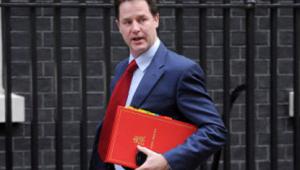Youth unemployment is high and will probably go on rising. Last week’s unemployment figures showed that some 943,000 16–24-year-olds were seeking work – the highest number on record. This is causing some alarm and all three main parties have developed a suite of policy proposals in response. In doing so, they have been cheered on by a chorus of commentators warning of the impending danger of a ‘lost generation’ in the workforce.
Two main government measures to tackle the problem include the Future Jobs Fund and Young Person’s Guarantee, which kicked off in earnest last month. The Future Jobs Fund alone represents more than £1bn of extra spending for job-creation programmes aimed at young people. The Conservatives, meanwhile, have developed proposals to move under-25s on to their specialist Youth Action for Work programme after six months’ unemployment. Older people would have to wait for 12 months for a similar level of support.
And the Liberal Democrats’ Ninety- Day Promise aims to bring the special measures for young people forward, to provide more support even earlier.
But it’s far from clear why the current debate revolves around young people rather than on unemployed adults aged 25 or over. Government action is required to minimise the scarring effects of unemployment on people’s skills, earning capacity and re-employment chances. But the young should not receive the lion’s share of the additional resources now pitched at saving people from the recession.
There are five reasons why.
First, the group of young people we should be concerned about is a smaller subset of the 943,000 headline figure. Somewhere around a quarter of all young unemployed people are full-time students, looking for work to fit in around their studies. While it would be great if they could find jobs, the financial support available to them means that their failure to find work is of much less concern from a policy perspective.
Second, for young people who aren’t students, unemployment is no worse for their future prospects than it is for those of older people. It is true that research into the ‘scarring’ effect of unemployment shows that for youth this is associated with reduced wages later on. But researchers have found similar problems for older people, and the uncertainty around these effects make it difficult to justify prioritising one group over another. Third, for young people who do find themselves out of work, the prognosis is relatively good. The rate at which young people move back into work is almost 50% higher than that for older people, and has bounced back strongly since the beginning of this year. This means that the average unemployed young person can expect to find a job sooner than their older counterpart.
This difference hints at the fourth reason why concern for the over-24s is underplayed. The quicker exit rates of the young from unemployment might partly be the result of their greater flexibility, as their skills have not yet been honed in any one job or industry. Older workers, by contrast, are more likely to look for work in narrower areas that would use the skills they have acquired. But this difference also suggests that over-24s have much more to lose from a period of unemployment if their more developed skill sets atrophy. This is bad news for Britain’s future productivity as well as for individuals.
Finally, it is clear that when unemployment does hit, it doesn’t affect everyone equally. Under-25s typically have fewer financial responsibilities than older members of the workforce. Indeed, only about one in eight young unemployed people are the head of their household, and around 70% live with their parents. By contrast, an older person who loses their job typically has much more to worry about: two-thirds of unemployed people over 24 are the head of their household.
Youth unemployment is a big problem, but so is unemployment for older people. Its impact on other policy goals, such as poverty reduction, is also in danger of being overlooked. Ultimately, youth unemployment is a useful stick for politicians to beat each other with, partly because young people are more easily seen as innocent bystanders in the economic crash, and partly because it plays to the fears of parents.
But it’s not good economics and it certainly isn’t fair, for policy makers to prioritise the young at the expense of others in the labour market.
Ian Mulheirn is the director of the Social Market Foundation











